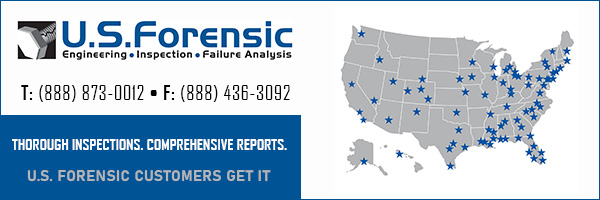N.J. Stat. § 26:13-16 (2005)
Job Protection. Any person who has been placed in isolation or quarantine pursuant to an order of the commissioner and who at the time of quarantine or isolation was in the employ of any public or private employer, other than a temporary position, shall be reinstated to such employment or to a position of like seniority, status and pay.
N.J. Stat. §§ 26:4-129 (1918)
Penalties. Except as otherwise specifically provided in this chapter, a person who violates any of the provisions of this chapter, or fails to perform any duty imposed by this chapter at the time and in the manner provided, shall be liable to a penalty of not less than ten nor more than one hundred dollars for each offense.
N.J. Stat. § 26:4-2 (2005)
Authority. In order to prevent the spread of disease, the state department of health, and the local boards of health within their respective jurisdictions and subject to the state sanitary code, shall have power to maintain and enforce proper and sufficient quarantine, wherever deemed necessary.
N.J. Stat. §§ 26:4-3 (1893)
Police Power and Limitations. Whenever the state department or a local board, in order to prevent the spread of communicable disease, destroys any goods, the state treasurer or local treasurer, as the case may be, shall pay to the owner of the goods, or his legal representatives, the sum so certified.
N.Y. Public Health Law § 2100
Authority. Every local board of health and every health officer may provide for care and isolation of cases of communicable disease in a hospital or elsewhere when necessary for protection of the public health.
N.Y. Public Health Law § 2120
Penalties. 1. Whenever a complaint is made by a physician to a health officer that any person is afflicted with a communicable disease or is a carrier of typhoid fever, tuberculosis, diphtheria or other communicable disease and is unable or unwilling to conduct himself and to live in such a manner as not to expose members of his family or household or other persons with whom he may be associated to danger of infection, the health officer shall forthwith investigate the circumstances alleged. 2. If the health officer finds after investigation that a person so afflicted is a menace to others, he shall make and file a complaint against such person with a magistrate, and on such complaint the said person shall be brought before such magistrate. 3. The magistrate after due notice and a hearing, if satisfied that the complaint of the health officer is well-founded and that the afflicted person is a source of danger to others, may commit the said person to any hospital or institution established for the care of persons suffering from any such communicable disease or maintaining a room, ward or wards for such persons. 4. In making such commitment the magistrate shall make such order for payment for the care and maintenance of the person committed as he may deem proper. 5. A person who is committed pursuant to the provisions of this section shall be deemed to be committed until discharged in the manner authorized by section 2,123 of this chapter. See more at: http://codes.lp.findlaw.com/nycode/PBH/21/2/2120#sthash.pK1brPk2.dpuf
N.Y. Public Health Law § 2120
Police Power and Limitations. The magistrate after due notice and a hearing, if satisfied that the complaint of the health officer is well-founded and that the afflicted person is a source of danger to others, may commit the said person to any hospital or institution established for the care of persons suffering from any such communicable disease or maintaining a room, ward or wards for such persons.
NYC Health Code Article 11. §11.17
Police Power and Limitations.
(a) It shall be the duty of an attending physician, or a person in charge of a hospital, clinic, nursing home or other medical facility to isolate a case, carrier, suspect case or suspect carrier of diphtheria, rubella (German measles), influenza with pandemic potential, invasive meningococcal disease, measles, monkeypox, mumps, pertussis, poliomyelitis, pneumonic form of plague, severe or novel coronavirus, vancomycin intermediate or resistant Staphylococcus aureus (VISA/VRSA), smallpox, tuberculosis (active), vaccinia disease, viral hemorrhagic fever or any other contagious disease that in the opinion of the commissioner may pose an imminent and significant threat to the public health, in a manner consistent with recognized infection control principles and isolation procedures in accordance with state Department of Health regulations or guidelines pending further action by the commissioner or designee.
(b) Whenever the person in charge of a shelter, group residence, correctional facility or other place providing medical care on-site is not capable of implementing appropriate isolation precautions for the specific disease, upon discovering a case, carrier, suspect case or suspect carrier of a contagious disease of the kind as set forth in subdivision (a), such person in charge shall mask such individual, if indicated, and shall isolate the individual by placing him or her in a single room as instructed by the department until such time as the individual can be transported to an appropriate healthcare facility that is capable of implementing appropriate isolation precautions for the specific disease.
(c) The person in charge of a school, day care facility, camp or other congregate care setting with children under the age of 6, homeless shelter, correctional facility, group residence or other congregate residential setting providing care or shelter shall, upon discovering a case, carrier, suspect case or suspect carrier of a contagious disease set forth in subdivision (a) shall mask such person, if indicated, and isolate the individual by placing him or her in a single room as instructed by the department until the person can be safely transferred to an appropriate medical facility for evaluation.
(d) A case, contact, carrier or suspect case, contact or carrier of a contagious disease set forth in subdivision (a) who is not hospitalized may, in accordance with the provisions of subdivision (k) of §11.23 of this article, be ordered by the department to remain in isolation or quarantine at home or other residence of his or her choosing that is acceptable to the department, under such conditions and for such duration as the department may specify to prevent transmission of the disease to others.
NYC Health Code Article 11. §11.31
Penalties. (a) No person shall intentionally or negligently cause or promote the spread of disease:
(1) By failure to observe, or by improper observance of, applicable requirements of isolation, quarantine, exclusion, treatment or other preventive measures, or by failing to take other precautions in caring for cases or carriers, or suspect cases or carriers of a contagious disease; or
(2) By unnecessarily exposing himself or herself to other persons, knowing himself or herself to be a case or carrier, or suspect case or carrier of a contagious disease; or,
(3) By unnecessarily exposing a person in his or her charge or under his or her care, knowing such person to be a case or carrier or suspect case or carrier of a contagious disease, to other persons; or,
(4) By unnecessarily exposing a person in his or her charge or under his or her care to another person who is known to be a case or carrier, or suspect case or carrier of a contagious disease; or,
(5) By unnecessarily exposing the remains of a person in his or her charge or under his or her care, knowing such person to have been a case or carrier or suspect case or carrier of a contagious disease at the time of his or her death, to other persons.
NYC Health Code Article 3. §3.01 (c)
Authority. Subject to the provisions of the New York City Health Code or other applicable law, the New York City Department of Health and Mental Hygiene may take such action as may become necessary to assure the maintenance of public health, the prevention of disease, or the safety of the city and its residents.




